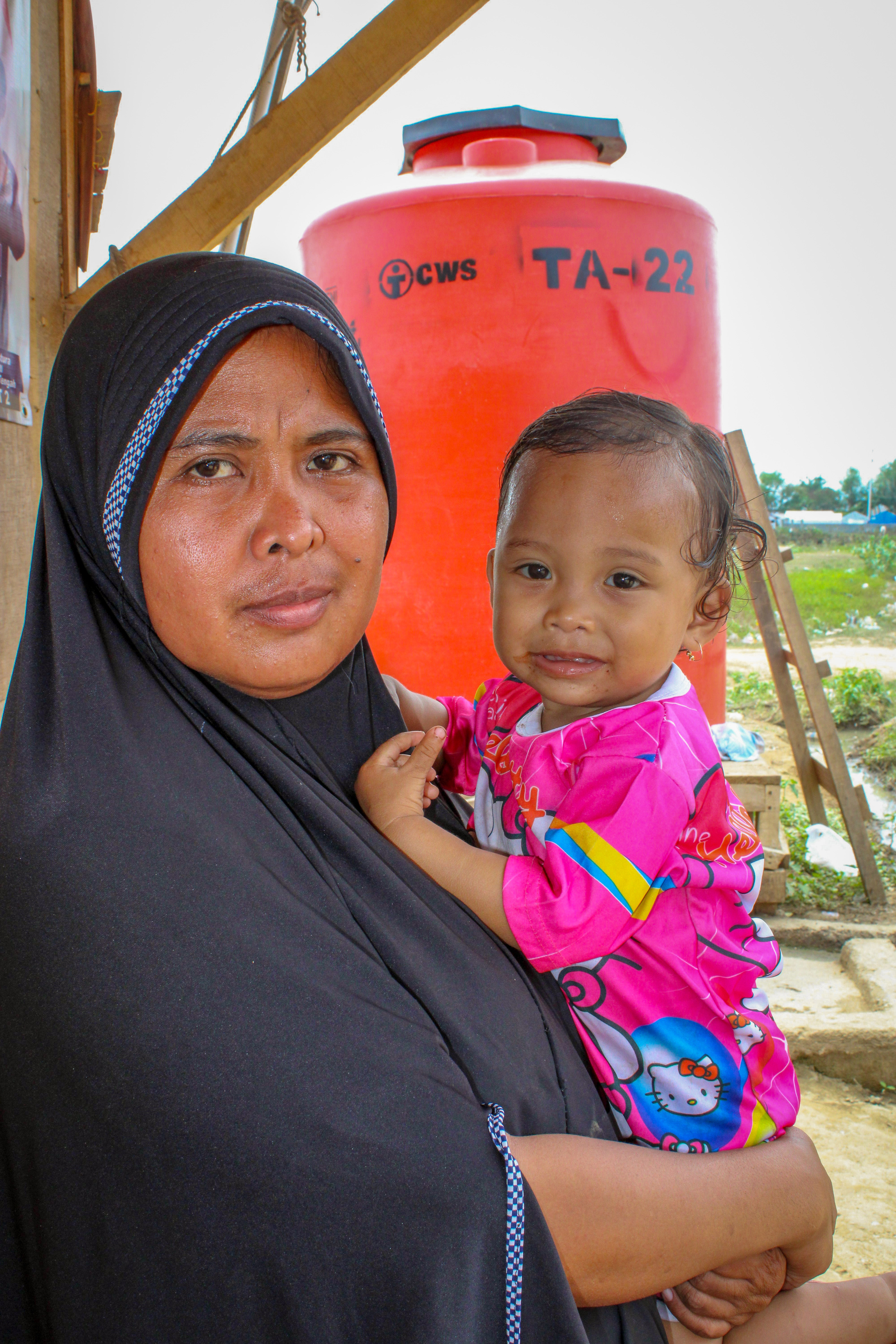Stories of Change

Agustin and her daughter in front of the CWS water tank that they use.
For a community to recover, women must be heard.
When a powerful disaster happens, many of it’s horrific effects are visible. When the 7.4-magnitude earthquake and tsunami struck Palu, Indonesia late last year, a lot of the damage was obvious. Roads warped, and houses collapsed as the ground shook and split.
Some of the effects are a lot more subtle. One of these is how much harder things can get for women in particular when they find themselves living in temporary camps.
In communities where women are primarily responsible for housework and caring for children, losing houses and infrastructure like water and sanitation systems makes things that much harder. It takes more work to keep families relatively safe and healthy. This is a burden that mostly falls on women. And when people end up scattered in tents and plastic tarps tied to the sides of buildings, a lot of the social network and person-to-person support systems are frayed. Women tend to stick closer to home and become more reliant on their husbands and sons for information and assistance. This adds extra stress to a situation that is already very stressful.
Because of this tough reality, our emergency response team has been intentional about making sure women are heard. We work alongside other organizations and the government to include women in decision-making about issues that affect everyone, like water and sanitation. Agustin is one of these women. She promotes women’s and girls’ perspectives and is now the community coordinator for the temporary shelter area where she lives.
“As community coordinator, I monitor the shelter area and make sure to meet with everyone, talk with them about their ideas and concerns, and make sure they feel that the shelter area is safe,” Agustin says. “I also meet with people to help make sure that our rights are protected. Right now, we are working with the government to try and get compensation for our damaged houses. I really like my work as a community coordinator, but some-times I feel bad for the people I work with. For example, when people have specific needs that I try to get local government workers to help with, but I can’t succeed in getting the help, I feel I am not doing my job well.”
There’s another important aspect to working with people like Agustin: including the voices of people affected by the disaster means that we can help provide the types of support that are truly needed. Agustin is one of more than 110,000 people who lost their homes in the earthquake and tsunami, so she knows first-hand what affected families are going through. She’s going through them, too. And she can ask people exactly what they need.
Through the perseverance of women like Agustin, we can meet basic needs and uphold essential rights. “By working as a community coordinator, I can help my neighbors raise their voices, so our basic needs are met,” she says. When the basics are taken care of, and people get back on their feet, everyone can start concentrating on other things. For example, Agustin is now helping people find jobs.
As Agustin and other community leaders continue their individual work, CWS continues to distribute about 62,000 gallons of water each day to more than 10,000 people using our fleet of 12 tanker trucks to reach 53 locations. People from over 2,800 families come to collect water as well as information about how to ensure its safety for cooking and drinking. In addition, we’ve built 22 four-stall public bathrooms in two districts and continue to provide emergency shelter kits and household items to those with continuing needs.
